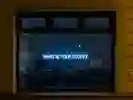Larkin Centre of Writing in the Humanities
Engaging with experts from the humanities, arts, and social sciences to deepen our understanding of literary creation in all its forms and its impact on human society.

Overview
Exploring the profound interplay between written expression and humanistic inquiry
At the heart of the University of Hull, the Larkin Centre of Writing in Humanities embodies the belief that writing not only reflects but also shapes our daily lives.
This Centre is dedicated to exploring the profound interplay between written expression and humanistic inquiry. By weaving together rigorous academic research and dynamic creative practices, we aim to address the pressing societal and cultural issues of our time.
Our mission is focused on engaging with and elevating those narratives that have been marginalised or neglected, offering new insights and perspectives through the combined lenses of literary, historical and cultural studies.


A deeper understanding of literary creation
The Larkin Centre of Writing in the Humanities is committed to fostering a vibrant intersection of academic scholarship, creative endeavour, and collaborative and impactful research.
Our approach is multidisciplinary, engaging with experts from the humanities, arts, and social sciences to deepen our understanding of literary creation in all its forms and its impact on human society.
Our focus
Writing for change
At the Larkin Centre of Writing in the Humanities, our commitment to advancing the University of Hull’s dedication to academic excellence is matched by our resolve to uphold and promote ethical standards in all our research and community interactions.
Find out more about our interdisciplinary team, our partners and our recent outputs.
Our Team
Our research
Profoundly influencing the research landscape
Our proactive and integrative approach ensures that the Larkin Centre remains at the forefront of both academic exploration and creative innovation.
We provide a unique hub for scholars, students, and the community to explore the rich landscapes of writing and the humanities.
Our research projects contribute to significant academic discourse and foster interdisciplinary scholarship.
Our collaborations span various disciplines within and beyond the humanities, amplifying the depth and reach of our research.
Our projects often address universal themes that resonate across different societies, promoting a broader understanding of human experiences.
You can explore how these interdisciplinary approaches tackle real-world challenges, such as our ‘Living with Death: Learning from COVID’ research cluster.
Advancing Humanities Research
We push the boundaries of knowledge in the humanities, integrating creative methods to explore complex cultural, social, and historical themes.
Cultural and Intellectual Exchange
Through our initiatives, we facilitate a vibrant exchange of ideas and methodologies that enrich the academic community and beyond.
Community and Global Engagement
We leverage our research to engage with both local and global communities, ensuring that the insights we generate are accessible and relevant.
Influencing Policy and Practice
Our research informs policy-making and cultural practices, bridging the gap between academic studies and practical applications.

Connecting ideas, creating impact
- Interdisciplinary projects: We merge literature with history, philosophy, and culture to explore the past and present.
- Collaborative research: In partnership with various university faculties and external cultural institutions, we conduct research that spans multiple disciplines.
- Visiting scholars program: We welcome distinguished international scholars and writers to contribute to our community, annually.
- Public engagement: Through workshops, seminars, publications, and public lectures globally, we share our output with wider audiences.
Get in touch